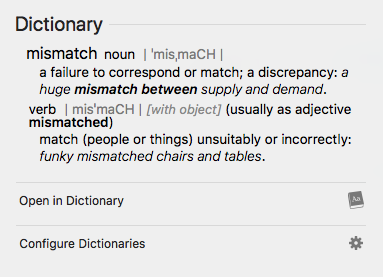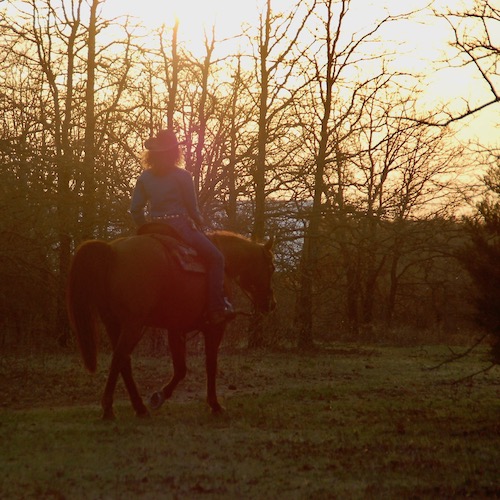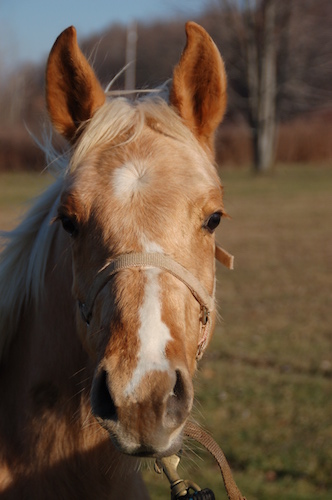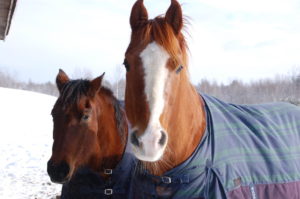 Mismatch:(noun) a failure to correspond or match. a discrepancy.
Mismatch:(noun) a failure to correspond or match. a discrepancy.
Mismatched: (verb) match (people or things) unsuitably or incorrectly
In sports, there is something called a mismatch. I’m not a sports person but my husband is. My understanding of a mismatch is that when teams are preparing to play each other they study the strengths and weaknesses of the opposing players.
They are often looking to predict if a mismatch might occur. If they see the potential for a mismatch, they plan to exploit it.
In sports terms it makes sense. In regards to horses and riders it also exists, but when we involve horses it is much more tempting to add emotion.
As a professional, I see different versions of mismatched horses and riders often.
Right now, take a moment and visualize a well-matched horse and rider. Can you see how easy it looks? How it flows?

A well-matched horse and rider make things look simple and easy.
Now picture a horse and rider combo that isn’t as in sync. Somewhere in there we often find a mismatch. Here are several examples of mismatched horses and riders:
- Horse lacks emotional training and becomes anxious easily, triggering anxiety in the rider (who is anxiety prone).
- Horse is a bit lazy, rider is uncomfortable enforcing rules, horse now bucks when asked to move.
- Horse is a high energy individual, owner wants to quietly walk down the trail once a week
The most common mismatch I see is a horse I will call ‘complicated’ matched with a rider who wants a ‘simple’ horse. Let’s explore this specific example of a mismatch.
Example of rider
Riders who want a simple horse often:
- busy lives
- ride for enjoyment and relaxation
- wants low risk of injury
- wants predictable rides
- enjoys time in the barn as much as riding
The rider who wants a simple horse is not asking for too much. I actually applaud people who have this much clarity in what they want. These horses do exist and I will discuss them later.
Example of horse

Foals are cute but can be complicated
Let’s look at some characteristics of the complicated horse:
- young
- lacking training
- the class clown
- highly creative
- very high energy
- very low energy
- history of training that contradicts riders desire
As you can see, none of these characteristics are a true problem in and of themselves. You can also see that some of these are characteristics that can be changed, such as the level of training. Others are individual characteristics, such as highly creative.
A horse that lacks training is not necessarily a problem horse but can easily become one. A creative horse can be an amazing partner to a creative rider or can overwhelm other riders.
Predicting the match
Looking for a match or a mismatch isn’t an exact science. The horse, the rider and the goals must all be taken into consideration. Those are three individual pieces that each deserve to be looked at.
Emotions are a piece of the puzzle. I would encourage you to write them down but set them aside. Feelings of failure, disappointment, questions of loyalty are often experienced but they can also cloud judgment. I like to picture myself setting them aside and then picking them back up at the end. They are real but they shouldn’t be your only decision-making tool.
In this example, we are still looking for a simple horse to fit a rider who wants to ride once or twice a week and not much in the winter.
Analyzing the horse
Usually, the horse is fairly straightforward to analyze if you keep in mind that you are being asked to judge him as he is. For this exercise, we are not trying to identify potential. In another matching scenario we could add potential in as one of the factors but for this example, a search for ‘potential’ is going to fall into the complicated category. In this example, we are looking for simple.
If you are not sure how to evaluate a horse then consider involving professionals or experienced friends. Complicated horses will be easy to identify because their behavior will require a lot of explaining. Simple horses will also be easy to identify because they are exactly as they appear to be without an additional explanation being needed.
Analyzing the rider
Generally, the most variable piece in the equation is the rider. To maximize success the rider would do well to understand what their goals are as well as their current ability level.
Many riders lack clarity. This will often make them seem open to a large number of options. There is nothing wrong with being open to options as long as the rider is fully aware of what they are saying. For example, the rider in this example may say they simply want a horse to ride occasionally.
- Do they define riding as walking only or do they want to ride all gaits?
- Do they want to stay in a ring or head out on the trails?
- Are the trails hilly or flat?
- Is occasionally once a week or once a month or once a year?
While it might seem that this is a lot of questions I would encourage answering them. It is possible that the rider could change their mind but when given the chance most riders will surprise themselves with their knowledge of their dreams.
The rider also needs to understand their current knowledge level and their physical ability. Both of these are flexible to some degree but it is often helpful to start with understanding where they are at at the moment. Older riders are often more willing to admit some physical limitations that they don’t anticipate changing. We all have limits that we have either accepted or are learning to overcome; acknowledging them is important.
The knowledge trap
Knowledge level is probably the most flexible component to study. People have an amazing ability to commit themselves to increasing their knowledge and to learning more. In a way, there is no limit to the amount of knowledge we can acquire.
One noticeable limitation to knowledge is admitting that book knowledge is not the same as physically being able to accomplish the task. This doesn’t diminish the power of knowledge but recognizes that riding horses is a physical sport. Understanding a concept is not the same as being able to accomplish the physical task.
I admit that stating this may seem harsh but I assure you that I don’t intend it to be. I have often seen people put themselves in physical danger because they were not willing to admit that physical limitations are real. It is easy to say that someone could completely understand the game of football and would still be ill-equipped to play the game at some level. The same thing is possible when riding horses. It is important to admit that there are varying levels of strength or fitness required to ride different horses. This is not a criticism of either horse or rider.
Handling a mismatch
Similar to the way a sports analyst would study teams to predict matches or mismatches, riders should either self-analyze or find a professional to help determine a match or mismatch with a horse.
Admitting that a mismatch exists is not the end of the world. I have met many horse owners who have accepted the mismatch, chosen to keep the horse and instead change their goal.
Maybe they wanted to ride and could reach that goal on a quiet older horse. Instead, they have admitted that due to physical limitations they are not safe on the slightly unpredictable horse they own that has bucked them off three times. They are willing to keep the horse as a pasture pet instead.
I have also met riders who have doubled down on their learning or fitness level to bring themselves up to be a better match.
Pick your problem

Older horses can be great partners even with arthritis and other issues
In my earlier example, I used a rider who wanted a simple horse to ride once or twice a week and not much in the winter. A great way to find these horses is to look for an older horse who may have some physical limitations. This could be an older show horse that cannot perform as well anymore or it could be a camp horse that can no longer be ridden all day during the camp season. Many people shy away from older horses because they know they have problems such as arthritis or special shoeing needs.
These very real ‘problems’ can actually be a benefit. An older horse with some arthritis still needs to move to stay healthy and is often happy to only walk down a trail or be ridden less frequently.
These older horses aren’t as flashy as their young counterparts. Much like older people, older horses don’t naturally have a youthful appearance. It is very easy for riders to get caught up in the ‘potential’ of a horse and overlook the complications that come with the unknown.
No horse is perfect, which is fine because no person is perfect either.
Advice for creating matches
My advice for creating a strong match is:
- know yourself and your limitations (current)
- know your horse and his limitations (current)
- create a safe situation for both of you
- create an enjoyable situation for both of you
Deal Breakers
Many mismatches between horse and rider can be solved by the rider changing their goals. The questions that generally surface in this discussion are, will you be satisfied if you change your goal? Can you afford to have another horse to aim for that goal with? Do you enjoy this with the limitations you both have?
One of the quickest ways to find this answer to this is to ask, “If you didn’t own this horse right now, would you go buy him again?” This is a question that my husband, Jesse, frequently asks people when trying to help customers clarify their goals. If the customer can put aside any possible guilt they may feel if they answer ‘no’ then the question can add clarity. A true yes or a true no is a great first step.
I have seen people keep horses out of guilt and fear. While there is nothing wrong with this, it should be noted that there may be someone out there for whom your mismatch is a perfect match.
I consider a mismatch to cross over to a deal breaker when safety is involved. I believe that a mismatch which greatly increases the likelihood of injury to either horse or rider should be a deal breaker. I often see people who are committed to keeping a horse despite the fact that it has injured them or is an accident waiting to happen. The unfortunate truth is that if the situation were reversed, and the owner was very likely to hurt the horse, we would all clearly see that it was not a functioning match. Just because humans are willing to sacrifice their safety doesn’t change the fact that safety is being sacrificed. Often these people don’t admit that the horse will gain a reputation that they may have avoided in more equipped hands.
When to sell
Deciding to sell a horse can be a tough decision. I’ve already outlined that just because a mismatch exists doesn’t mean you need to sell. Instead, simply admitting and changing plans could be enough.
Some people will decide that selling is a better option. Hopefully, they do it with a feeling of hope, hope that the horse can find a better match and hope that they can be a better match.
I sell my own horses when they are not a perfect match for this same reason. I have trained many horses that worked for me but I knew they could be someone else’s perfect match. This is a better vs best situation and I love it. I’m not rushed when selling, yet I remain open to the idea that there really could be a better home. ‘Better how?’ you might wonder. Well, if my goals are to show at a high level and it requires me to ask 110% of the horse every time, that same horse is often a superstar with a less experienced rider. That rider may only ask for 70-80% and be totally thrilled with the results.
A mismatch doesn’t’ have to be a huge discrepancy to still be labeled not matching.
19 Comments
Leave a Comment

FREE PDF DOWNLOAD
WHY IS MY HORSE...?
100% Private - 0% Spam
No one taught you the skills you need to work through these things.
Riders often encounter self-doubt, fear, anxiety, frustration, and other challenging emotions at the barn. The emotions coursing through your body can add clarity, or can make your cues indistinguishable for your horse.
Learning these skills and begin communicating clearly with your horse.
Click here to learn more.

Hello, my name is Georgia I am 16 and an avid horse lover. I am currently volunteering at a boarding facility and want to eventually give lessons to kids and train horses. I don’t have a horse of my own and am looking for one to practice groundwork with and to ride for fun. I just don’t know what to look for or what kind of horse I would be compatible with. I want to find a good groundwork training method to practice with my horse. I hope you can help, I really want to work with horses and be successful but I am a little stuck. Thank you in advance for your time.
I would ask the boarding facility to help you figure this out. Each horse will be different and each will teach you.
As long as you both stay safe, any and all horses will be great to learn from!
That is exactly what I did, and the people at the boarding facility are allowing me to work with one of the horses there, with a little guidance from an experienced trainer. Right now I am trying to get to know Moose a little better before practicing anything with him. Thank you for the advice though, and I agree that safety is the most important thing, so someone will always be in the arena with me.
Hi Stacy,
This article sounds like my horse and I. My horse is complicated and I have to work, so time is a problem. Then there is always someone needing something done. This summer I told everyone I’m working with my horse nothing else, so that’s what we did. We got to come to one of your 4 day clinics this August and learned a lot. Then we were improving, but we hit another problem I have ran into with my horses training again. We are doing good then she was diagnosed with a type of asthma, so I had to give her 3 weeks off and bring her back slow per my veterinarian. I feel we take a step forward then we have to take 50 back. That’s why I have not gotten back with you. So maybe I will get to show my horse at Congress before she turns 20-25 years old.
Yikes! I’m glad it sounds like she will come back from it. Asthma…that is interesting. I haven’t seen one diagnosed with that in quite awhile. You were making great progress! Physical things like that are tough but very real. That is one of the reasons I liked doing the Stacy’s Video Diary: Jac Youtube series. There were several times during that where Jac had time off for odd things. It happens but it isn’t ‘seen’ because we don’t often talk about it. The good news is that when they can go back to work they often pick up right where they left off in the training.
Stacy, I recently sent you an email concerning my lack of confidence after a fall. You blog was very good for me to realize that not all horses are a good match. Even though my current horse is older he still might not be the right match with my physical limitations. I think my hardest task going forward is finding the right match. I’m the few times a week no winter rider that wants a very relaxed calm horse. One that I interact daily with but not riding everyday. The challenge is finding it on my dwindling budget as a retiree. Thanks for your insight.
Bobbye, I’m not sure where you live but a great place to find horses like you are describing is somewhere like http://www.bellarunequine.org
BUT not all horse rescues are the same. I trust sending people to Rachel and Zach because if they don’t have a horse to fit you they will tell you and send you away without a horse. They keep the horses long enough to get to know them and they care. Plus you can’t beat the prices. Check them out.
Thank you Stacy, I’ll certainly check them out.
Definately will do Stacy! Thanks for the FAST reply! This is the best article on horse / human connection I have read. ???
Very interesting Stacy. You are a great writer that has a knack for explaining things so well!! You have now met Hildy twice. I have enjoyed learning with her, however it has taken me a long time to get where I am today. At times I have been discouraged and I have also been encouraged through our learning process. There has been many times that I would have thought they we were a mismatch. Would I have liked to have another horse at times–yes. Then I think to myself, if I would have had a better trained horse, I would not have the knowledge I do today. Then I also think it would have been nice just to be able to get on a horse and ride and not have to think about always training. Selling her was not an option for me–I felt that since I bought her, it was my responsibility to make her more educated and make myself more educated–which definitely happened. All of your blogs throughout the years have gotten me through some difficult times and kept me on the right track to better communicate with her. As always–thanks for sharing your professional training methods, suggestions, and ideas that always keep me thinking and trying new training methods
Thanks Martina! I might write another follow up to this that is more specific to what you describe with Hildi. When horses and riders are learning together everything isn’t ‘smooth-sailing’ even if things are a match. The ‘match’ doesn’t=easy or done for you.
From what I’ve seen with you and Hildi, you have kept her (personality/physical ability) in mind, adjusted your goals as life happened, stayed optimistic even when the path wasn’t clear and aimed for progress.
Mismatches usually feel slightly different than just frustration, they start to rob people of the joy they had. Does that make sense?
Thanks for the response–that does make sense. Wishing you all safe travels.
Everything you have stated is so true. I have gone through two major falls, three trainers, and five horses in three years. My most recent purchase is a 13 yr old, very well trained gelding. My heart is smitten with this big guy and his puppy dog personality. ?
Thank you for this insightful commentary. This is exactly the challenges I am experiencing. I have a stunning talented horse that has been my “dream” horse, but I am now not as balanced a rider as I was in my younger years, and I now do not feel as safe as I should. For me to get another horse I would have to sell my current boy, and I am just not able to do that emotionally. Thanks again.
Leslye,
I’m very glad you found it insightful. I think it is important to recognize where both horse and rider are at and not judge. I remember years ago someone said, “Why would the owner have someone else show their horse?”
The answer was similar to what you said. If someone owns a talented horse, wants to keep the horse, and can match it with a talented rider then it can become a win-win-win.
This is a great entry Stacy. It deserves a book. While the concept of horses for courses and matching rider and horse is often mentioned, your specific examples add a great deal to the discussion.
Short of a book, maybe a questionnaire of some sort, one for rider and one evaluating horse, would be a valuable tool. As you mention, people get very attached to horses so it would immeasurably enhance the world of horse ownership if more people bought the right horse the first time.
Joel,
Thank you! Book writing is on my to-do list but I hadn’t considered this subject. Now I will consider it!
I completely agree with you. If people went into the purchase with a greater awareness they could greatly increase their chances of a match.
My husband and I have done this as a service in person for years and have begun doing it over the phone. The greatest challenge is still, as mentioned, rider/owner awareness of themselves, their limits, and their goals. We have gotten pretty good at doing the evaluations, now I need to look at how to expand them:)
Stacy, this article on Mismatch is the BEST! Do you offer phone consults for a fee?
Karen,
I’m glad you liked it! We do offer phone consults. Right now I have it disabled because we are headed to Australia to teach at Equitana. This link will give you an idea of what the scheduling process looks like and the current fee is the same as the one listed here. https://calendly.com/jesselwestfall
The biggest difference is that for phone consults we have you fill out a form so we can get a jump start mentally about the challenge your facing so we can make the best use of your time during a call.
We will be available after November 26. Feel free to email me if your interest at westfallhorsemanship@gmail.com and I can get you the updated form when we return.